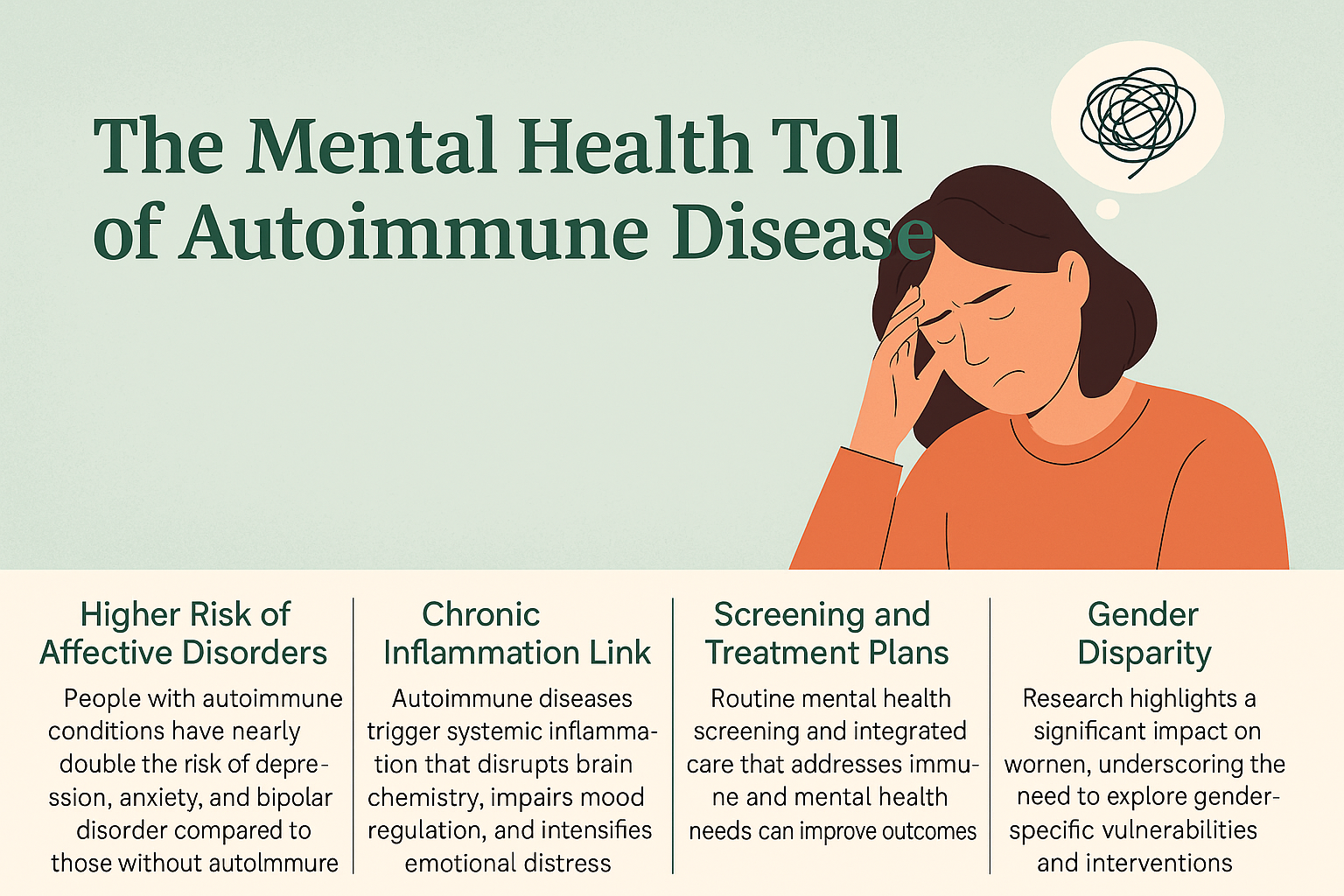Website designed with the B12 website builder. Create your own website today.
Start for free
Autoimmune diseases—like rheumatoid arthritis, lupus, psoriasis, or multiple sclerosis—don’t just affect joints, skin, or nerves. New evidence shows they can impact the mind in profound and often invisible ways. According to groundbreaking research published by the University of Edinburgh in BMJ Mental Health, individuals with autoimmune diseases face nearly twice the odds of developing mental health conditions such as depression, anxiety, or bipolar disorder. This connection between the immune system and emotional health is now gaining attention—and for good reason.
In a study involving more than 1.5 million participants through the UK’s “Our Future Health” initiative, researchers observed striking mental health trends among people with autoimmune diagnoses:
Women, in particular, appeared to carry the greatest burden: 32% reported a mental health condition, compared to 21% of men.
While the study doesn’t claim causation, experts point to a critical underlying factor: chronic inflammation.
Inflammation is the immune system’s natural response to injury or infection, but when it becomes chronic—as in autoimmune diseases—it can negatively impact the brain. Prolonged inflammation may:
In short, your body’s ongoing physical distress sends feedback loops to the brain, potentially contributing to—or exacerbating—mental illness.
“Sometimes, I feel like I’m fighting two invisible enemies at once,” shared Dana, a 38-year-old living with lupus and generalized anxiety. “The flare-ups hit my joints, but they also send me into spirals of fear and sadness. It’s exhausting in ways people can’t always see.”
Dana’s experience is far from unique. Personal stories echo the research: autoimmune flare-ups and mental health relapses often walk hand in hand.
For physicians, these findings present a strong case for early and ongoing mental health screening as part of autoimmune care—especially for women.
Healthcare providers are encouraged to:
Likewise, patients and caregivers should watch for these signs:
“My mental health was the missing piece for years,” said Terrence, a 54-year-old with psoriatic arthritis. “I didn’t realize the fatigue and anger were more than physical symptoms. Therapy finally gave me language for what I was feeling—and relief I didn’t think was possible.”
Experts are calling for a more holistic, collaborative approach to autoimmune disease care. This includes:
Studies show that integrating mental health treatment can lead to better immune outcomes, reduce medication reliance, and improve quality of life.
The disproportionate impact on women raises important questions. Some theories include:
Future research will need to explore these patterns further—but in the meantime, tailored support and early intervention remain key.
Whether you’re a patient, loved one, or healthcare provider, here are proactive steps you can take:
Recognizing that the immune system and mind are interconnected isn’t just insightful—it’s transformative. By acknowledging the mental toll of autoimmune diseases, we open the door to better, more humane care.
Let’s treat not just the illness—but the whole person.